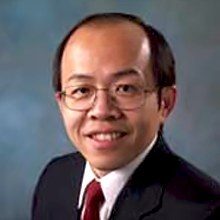John Yen

Education
Computer Science & Engineering
Informatics
Social Data Analytics
Professional Bio
I joined College of IST at Penn State in 2001, one of the third groups of faculty hired since the creation of the college in 1999. Since 1982, when I entered the PhD program (in Computer Science) at University of California, Berkeley, I have been fascinated by the vision of artificial intelligence. During the past three decades, my research focus has gradually shifted through the following three phases:
- Making computers smarter (1982-1997)
- Designing computers so that human-machine teams are smarter (1997-2011), which created the R-CAST agent architecture and a related US patent
- Extracting "smartness" from large heterogeneous data sets about human behaviors (including interactions through social media) (2007-present).
While the role of "machine intelligence" has shifted over my career, the vision of its impacts has grown significantly. Making computers smarter only aims to automate certain decisions by people. Extracting "smartness" from huge interconnected data, however, is transforming every aspects of human society. The explosion of digital information of all kinds in recent years now provides a new transformation we have never seen in human history --- the opportunity to harvest digital "traces" of our social interactions, our thoughts, our emotion, ... (obviously, subject to the protection of individual privacy). This provides us a once-in-a-human-history opportunity to innovate ways to better harvest these interconnected heterogeneous data of multiple types (text, images, physiological sensor data) spread over multiple scales in temporal, spatial, and human dimensions so that society can provide smarter healthcare, smarter education, and even smarter scientific discovery; while, in the same time, individuals can have higher quality of life. This is my passion!
